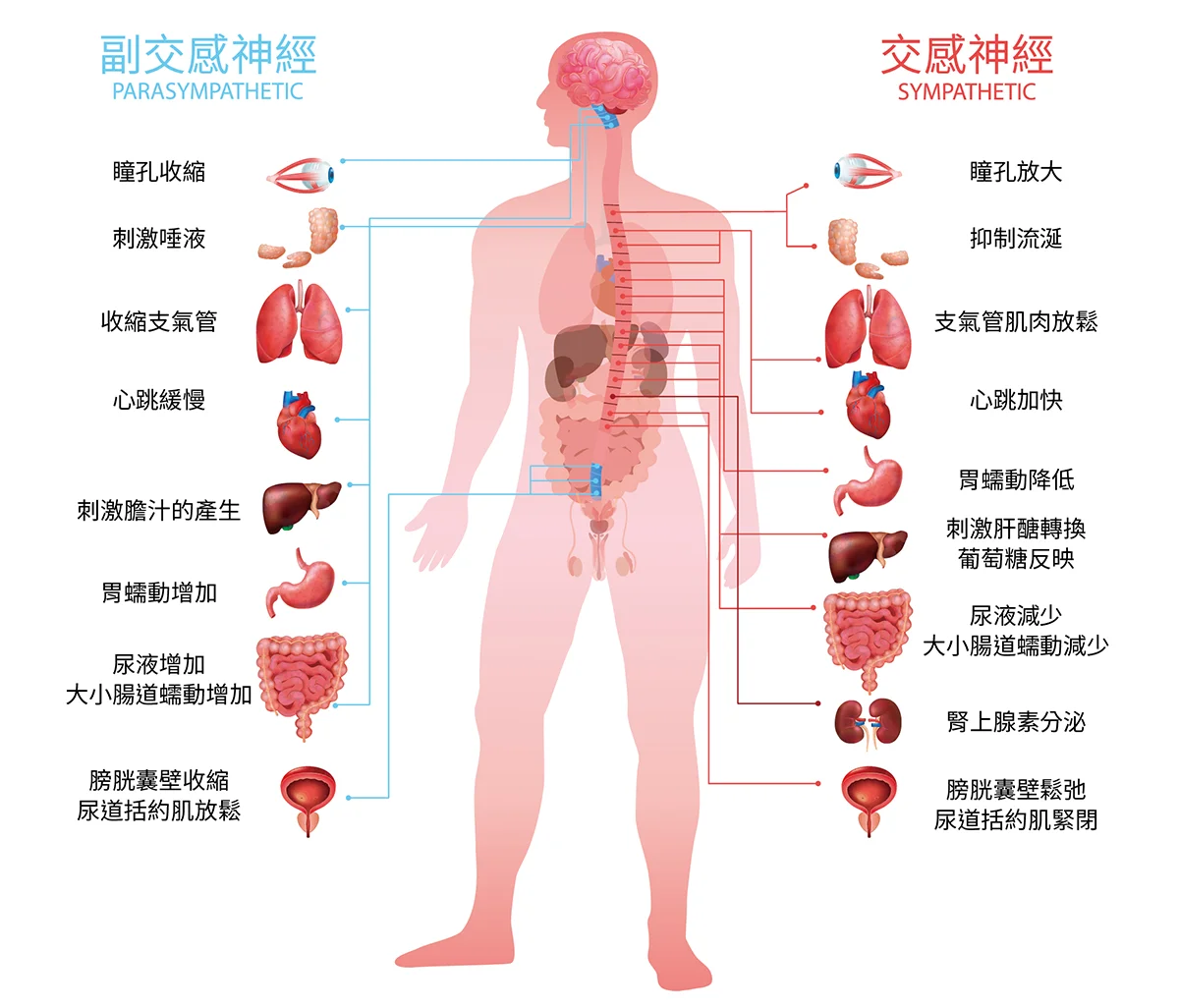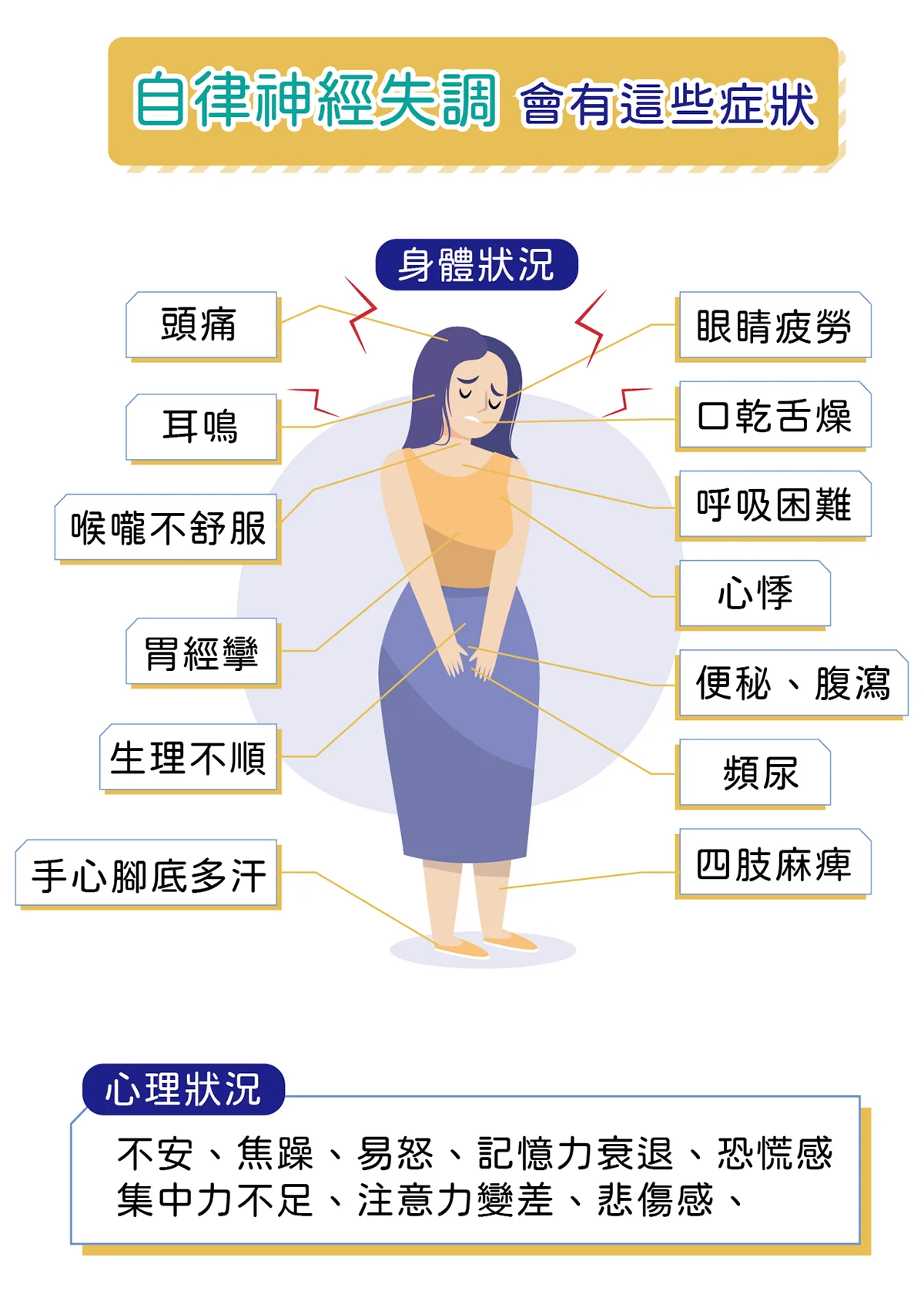Autonomic dysfunction
What is the Autonomic Nervous System?
The human nervous system is divided into two main categories: the central nervous system and the peripheral nervous system.
The autonomic nervous system consists of the sympathetic nervous system and the parasympathetic nervous system.
The autonomic nervous system operates independently of conscious control. The body balances blood circulation, breathing, digestion, immunity, and other systems through the regulation of the sympathetic and parasympathetic nervous systems.
Functions of the Autonomic Nervous System

During the day, the sympathetic nervous system is more active, allowing the body to handle busy daytime activities. At night, the parasympathetic nervous system takes over, slowing heart rate, lowering blood pressure, and reducing body temperature to prepare for sleep. Therefore, if the autonomic nervous system is out of balance, individuals may feel weak and fatigued during the day when they need energy for work, but become overly alert and suffer from insomnia at night. These imbalances can cause symptoms that mimic other diseases, which is why some people may feel unwell and visit a hospital, only to find no identifiable cause. The root issue often lies in an "autonomic nervous system disorder."


Why Does Autonomic Nervous System Dysfunction Occur?
Under normal circumstances, the sympathetic and parasympathetic nervous systems work in opposition yet synchronize to maintain smooth physiological functions in the body. However, prolonged exposure to chronic or excessive stress, anxiety, and depression can disrupt this balance. When autonomic nervous system dysfunction occurs, individuals may experience discomfort in sensitive areas of their body, as illustrated in the image on the right.
Why Can't the Cause Be Found Despite Feeling Unwell?
"Autonomic Nervous System Dysfunction" is a collective term for a set of symptoms, not a specific disease. Similar to how a "fever" indicates an underlying issue—it could result from dehydration, a cold, or pneumonia, with causes ranging from mild to severe. Fever is simply the body's response to a problem, acting as a warning signal that something is wrong. Since autonomic nervous system dysfunction primarily affects the nerve functions on the surface of organs and tissues, while the structures themselves remain intact, hospital diagnostic equipment often fails to detect any abnormalities. However, the discomfort remains. Ignoring these bodily signals may allow minor problems to accumulate into severe illnesses, missing the opportunity for timely treatment. The latest heart rate variability analysis technology can now help identify the root causes of autonomic nervous dysfunction and assess the risk of sudden death, potentially preventing major diseases. This represents a significant advancement in preventive medicine.
Methods to Prevent Autonomic Nervous System Dysfunction
Regular weekly exercise
Maintain a consistent daily routine
Avoid smoking, excessive alcohol, and high caffeine intake
Ensure stable sleep quality and adequate rest
Learn relaxation techniques: diaphragmatic breathing, meditation, etc.

Can Autonomic Nervous System Dysfunction Be Treated?
Autonomic nervous system dysfunction can be treated. However, because patients often present with diverse and complex clinical symptoms, many end up consulting the wrong specialists, taking incorrect medications, and bouncing between different clinics. This process consumes significant time, energy, and emotional strength, yet recovery remains elusive. Therefore, autonomic nervous system bioenergy assessments can help analyze and identify the type, cause, severity, and complications of the disorder. Accurate diagnosis is essential for effective treatment.